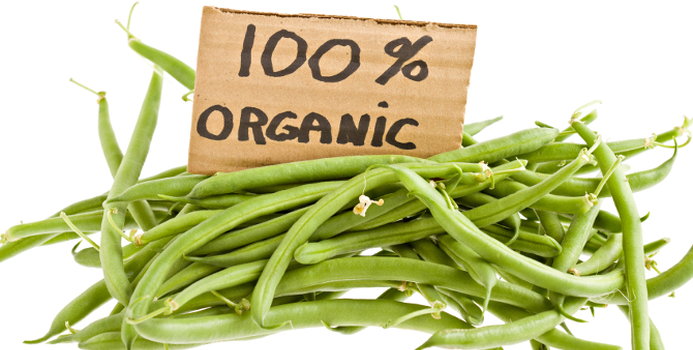From tomatoes to ground beef, many foods today are produced using certified organic techniques. You will see the official sticker designating a food as "organic" somewhere on its packaging, but what is the difference between an organically grown food and any other? What makes a food "certified organic"?
What Does Organic Mean?In a sense, everything is organic. Everything you consume comes from some source of our planet, making it literally organic. But when we are talking about food, the term means that no extra chemicals or ingredients were added to make it larger, brighter or tastier. Think of it like your back yard garden. Organic farming uses no chemical pesticides to kill excess weeds or insects and each fruit or vegetable has a chance of imperfection. If you have ever compared organic vs. "conventionally" grown tomatoes, you understand the difference between their physical shapes, sizes and consistencies.
"Organic" can refer to more than just fruits, vegetables and meat, though. Farmers, processing plants, seed distributers and restaurants are among some of the entities that can obtain an organic certification. These companies will possess an actual certification of organic processing that can be viewed by the public.
What are the Requirements?The U.S. government has created a number of standards and laws in order to establish which foods are certified organic and which are not. These laws require producers to adhere to certain practices in order to gain their organic certifications, including: minimizing the use of chemical pesticides unless absolutely necessary; abstaining from using antibiotics, growth hormones, and non-organic feed for animals; avoiding genetically modified substances, seeds and organisms; utilizing farmland that has been free of pesticide use for at least 3 years; and separating non-certified organic materials from certified organic materials.
In addition to those regulations, farmers, food processing plants, seed distribution companies and shipping companies are subject to inspections of their facilities and machines whenever declared necessary by the government. These companies also need to keep a paper trail of all of their expense and sales reports for auditing if needed.
Why are These Regulations Important?Organic certification is an integral part of ensuring that consumers receive the best quality food raised under the best care. It exists to provide you with the certainty that what think you are getting is what you really are getting. The strict laws and regulations separating certified from non-certified organic foods keep our farming system accountable and reliable, allowing only the best and most diligent companies and farmers the certified organic sticker on their products. It is a symbol of hard work and integrity and one of the highest standards in the United States.
If you come across the "USDA Certified Organic" sticker on your groceries, you can have a sound mind knowing that those foods were raised, packaged and shipped following the specific guidelines required by the U.S. government. So don't mind that little bruise on your organic apple because at least you know there is nothing on it or in it but apple!



